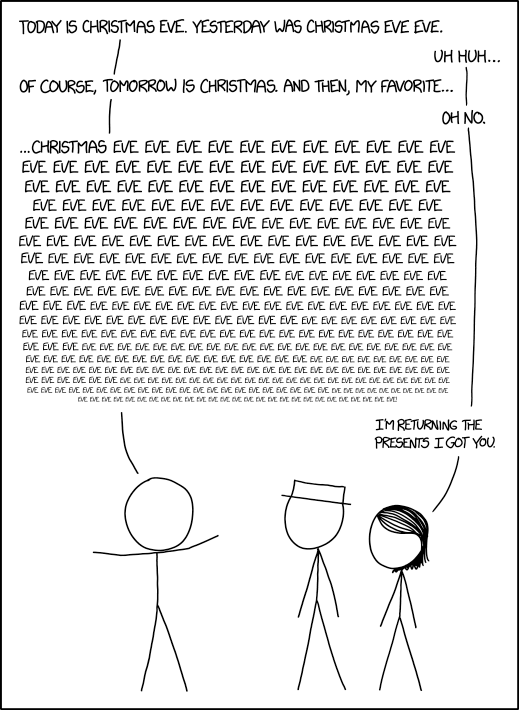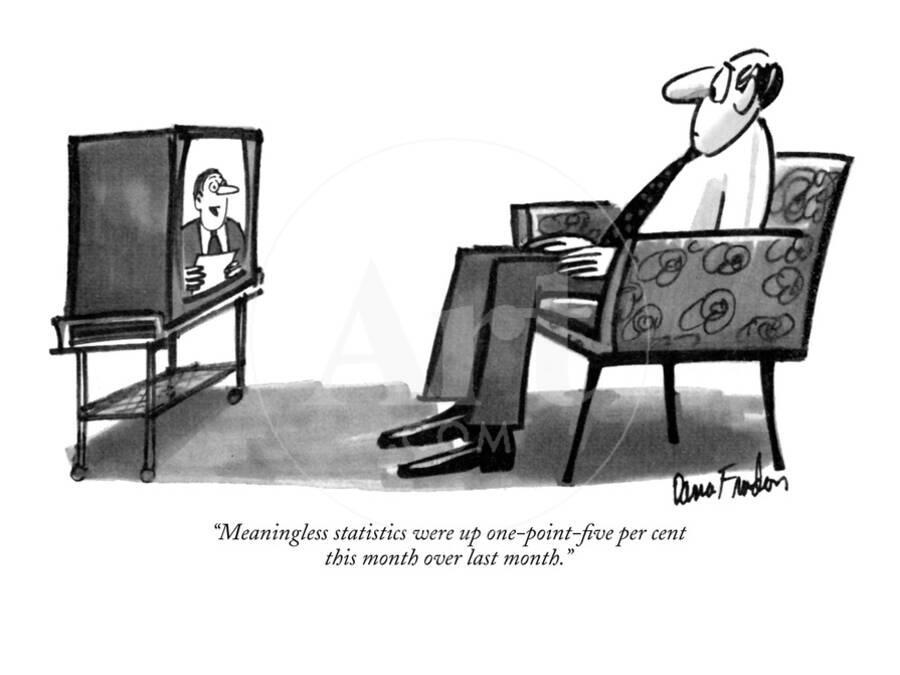More from Albert Burneko's piece on the death of the born-terminal Quibi. In this section, Burneko takes one of those bizarre ideas we've mostly come to accept and forces us to face its utter absurdity.
Catastrophic tech-startup failures are the best kind of story that
can exist in America in the 21st century, and the only kind of good
story that can come out of an industry whose successes are pretty much
uniformly horrifying and abominable. I treasure them. American society
increasingly resorts to an abstract, Process-ized, anti-human concept of
what it even means for a venture to “succeed” or “fail”: Uber, as an
example, has never come close to conventional profitability, has ravaged
what were once thriving taxicab industries in many American cities, has
replaced stable and reasonably normal cab-driving jobs with an
underclass of quasi-employees hustling absurd work-hours to barely break
even, and at best merely facilitates the dispersal of the very concept
of gainful employment into the purgatorial gig economy in which
a person increasingly monetizes every moment of their waking life to
keep the lights on… and is, by most reckonings, one of the signal
success stories of Silicon Valley.
...In light of all this it is a source of very nearly orgasmic delight
to be reminded that a would-be disruptive tech venture can, in fact,
just straight-up fucking fail.
One fun kind of startup failure is the kind that makes wild claims
about its ability to deliver a revolutionary product, hoovers up ungodly
sums of investor money, then never delivers anything even vaguely
recognizable as the product it promised, and collapses as it becomes
crystal-clear that its founders were big-talking phonies and investment
money was the only kind of money their company would or could ever make.
At least a couple of Elon Musk’s various companies, for example, are at
various points along this story arc; the eventual hilarious stories of
their failure are like unrealized assets, Christmas presents waiting to
be opened. When a standard Silicon Valley founder-type (that is to say, a
moral idiot who watched The Social Network with the sound muted one time) applies this template to an actual regulated industry (laboratory blood-testing,
say), the result is many very serious felonies, but honestly this kind
of thing is a hoot even when it’s just some cockamamie nonsense about using algorithms to find previously hidden oil deposits.
Another kind is a little more innocent, but ultimately much funnier:
The startup that actually delivers a product, but an obviously worthless
one that nobody wants. You may recall Juicero, the company that
produced a large, heavy, $400 WiFi-enabled countertop juice press for
squeezing fruit juice out of Juicero-branded bags of fruit juice, and
which capsized when some of its marginally less stupid early adopters
discovered that they could just squeeze the juice out of the bags (of
juice) with their hands. What makes this variety of startup failure so
magical, what gives it its, ah, juice, is that it functions as an index
of the gap between the class of putative business-savvy investor sharks
who dump their money into these ventures and the real world, itself
largely filled with doofuses who spend their money on stupid things, but
no significant number of whom would ever think “Ah yes, a large
expensive internet-reliant device, that is what I need in order to get
some fruit juice.”
...
But there’s another sad generation gap manifesting itself in Quibi’s
crashing failure: It was bedeviled, from the beginning, by the very
antiquated belief that in order for a startup business to succeed, it
must actually succeed. Like, as a company that makes and sells a
product, even! They dumped over a billion dollars into this thing, they
built it at an absurd scale, they gave Quibi programming creators
ownership of their shows instead of fashioning some flamboyantly evil
legal framework for extracting even their own personal names from them,
because they actually thought they were starting a company that would
create and sell a good product and fill what they perceived to be an
actual opening in the entertainment industry. Those dolts. Those
absolute fools! A startup company isn’t an industrious venture that
makes and sells a worthy product; a startup company is a plywood box
containing a whiteboard with arrows and numbers on it and as few
employees as possible, which gets passed around among progressively
meaner and more craven moral dwarves until it can no longer sustain even
the flimsiest illusion of extractable vitality, and then is dissolved.
The median tech industry startup is all but explicitly smoke and
mirrors, rooted in “fake it till you make it” overpromising and theater;
startup culture valorizes bullshitting and/or outright deceit as a kind
of capitalist derring-do. And while the “make it” part of the
formulation certainly can mean “delivering on the good and/or
service the creation of which is the company’s nominal reason for
existing,” exponentially more often it means sustaining the illusion of
efficiency and productivity long enough to secure a huge sale to a
larger entity. Often the larger entity knows it’s buying
bullshit, and is happy just to squat on a patent or break up a workforce
that might theoretically have posed competition had it fallen into the
hands of someone who intended to run it as an actual business. There’s
an entire industry based on finding out the shit big tech firms haven’t
patented yet, creating fake companies only nominally working on the same
thing, and then essentially extorting the big companies into paying off
those fake companies’ owners. Quibi could have done this. In the hands
of a purer charlatan, one not beholden to a dead old world’s notions of
business success, it would have had a purely for-appearances staff of
four people and a minuscule budget, required show creators to sign over
their firstborn children in exchange for dirt, and emptied itself into
Amazon’s featureless all-devouring mass a month ago, to the downright
criminal enrichment of its founders and early investors.






.jpg)




.jpg)
.jpg)
.jpg)
.jpg)
.jpg)
.jpg)





/cdn.vox-cdn.com/uploads/chorus_image/image/46380596/140325-mankofftoon2-editorial.0.0.jpg)


